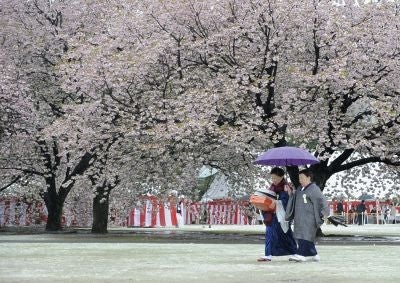Your support helps us to tell the story
From reproductive rights to climate change to Big Tech, The Independent is on the ground when the story is developing. Whether it's investigating the financials of Elon Musk's pro-Trump PAC or producing our latest documentary, 'The A Word', which shines a light on the American women fighting for reproductive rights, we know how important it is to parse out the facts from the messaging.
At such a critical moment in US history, we need reporters on the ground. Your donation allows us to keep sending journalists to speak to both sides of the story.
The Independent is trusted by Americans across the entire political spectrum. And unlike many other quality news outlets, we choose not to lock Americans out of our reporting and analysis with paywalls. We believe quality journalism should be available to everyone, paid for by those who can afford it.
Your support makes all the difference.The full picture the effect of the March 11 earthquake will have on the Japanese tourism industry is slowly becoming clear with Chinese media reporting mass cancellations of trips planned by that country's citizens.
The months of March and April are traditionally the most popular time for Chinese to visit Japan as they coincide with the popular sakura - or cherry blossom - season, according to the Beijing branch of the Japan National Tourism Organisation.
But companies such as Ctrip (http://english.ctrip.com/) - one of China's major online tourism agencies - have cancelled all trips to Japan previously set down for this month and say they won't restart booking until given the all clear by China's central government.
Like most travel companies in China, Ctrip is also offering full refunds for anyone who had booked a trip for between April 1 and 30 and was told last week by the government to urge tourists to either cancel or postpone their trips to the beleaguered nation.
"I feel so sad for the damage to the cherry blossom and for the Japanese people," one tourist told the China Daily newspaper after cancelling her trip to Japan
The news will come as a further blow to Japan's economy as the country had over the past few years become one of the most popular destinations for Chinese travelling overseas.
After the Japanese government in July 2009 launched an individual visa scheme for Chinese nationals, visitor numbers from that country have been constantly rising. Last year they reached 1.4 million - a 40 percent year-on-year rise.
Japan had big hopes for its tourism industry in 2011 after a record 8.61 million international tourists came to the country in 2010. Leading the way were 2.43 million South Koreans (a rise of 54 percent), the Chinese with 1.4 million and then 1.26 million Taiwanese (a rise of 24 percent).
Although it is a little too early to chart just where China's overseas travllers might choose to spend their time, the professor of tourism development at Beijing Jiaotong University told the China Daily he believed lingering fears of earthquakes and tsunamis would mean fewer Chinese would choose to travel to Southeast Asia.
MS

Join our commenting forum
Join thought-provoking conversations, follow other Independent readers and see their replies
Comments